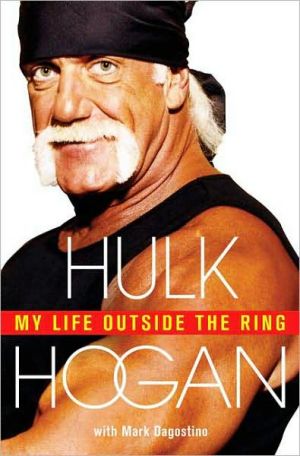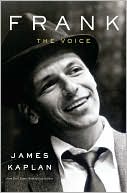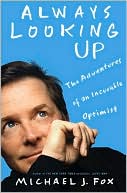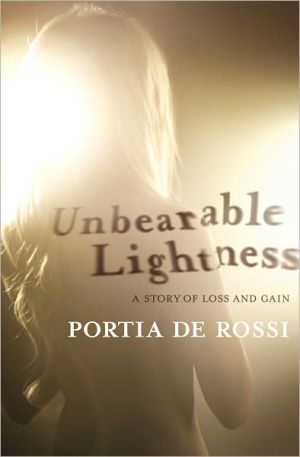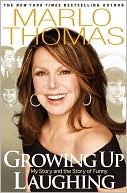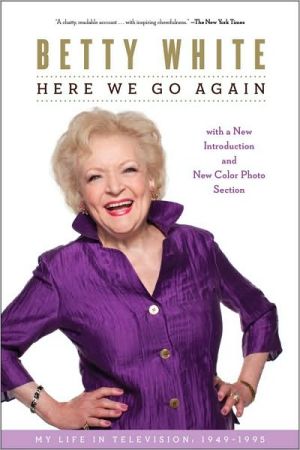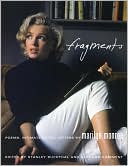My Life Outside the Ring
Hulk Hogan, born Terry Bollea, burst onto the professional wrestling scene in the late seventies and went on to become a world wrestling champion many times over. From humble beginnings, this giant of a man escaped a preordained life of dock and construction work in Port Tampa, Florida, to become one of the most recognizable celebrities on the planet. He did it through sheer will, girt, determination, and a drive to always go over the top and do more than what others thought possible. From...
Search in google:
Hulk Hogan, born Terry Bollea, burst onto the professional wrestling scene in the late seventies and went on to become a world wrestling champion many times over. From humble beginnings, this giant of a man escaped a pre-ordained life of dock and construction work in Port Tampa, Florida, to become one of the most recognizable celebrities on the planet. He did it through sheer will, grit, determination, and a drive to always go over the top and do more than what others thought possible. From the outside, his story was one of a charmed life—he was at the top of his career, had a wonderful and loving family, and a lifelong fan base who worshipped him. Of course he had his up and downs—including hints of steroid abuse and his falling out with WWE and Vince McMahon—but it’s been the last two years that have tested Hogan more than any other in his lifetime. In 2007, while riding the massive success of his VH1 reality show, Hogan Knows Best, his son Nick was involved in a tragic car accident that left his best friend in critical condition. Then Linda, his wife, left him after 23 years of marriage, his beloved daughter Brooke blamed him for the breakup and his son went to jail. The tabloid media had a field day. When unflattering jailhouse conversations between him and his son were released to the press the tabloids were in a frenzy. The sudden turmoil and tragedy surrounding Hogan took its toll. He fell into a deep depression, seeing no way out, until one fate ful phone call. In My Life Outside the Ring, Hogan will unabash edly recount these events, revealing how his new found clarity steadied him during the most difficult match of his life—and how he emerged from the battle feeling stronger than ever before.I was right there leaning on the side of the car with my hands when I finally saw Nick—my only son—folded up like an accordion with his head down by the gas pedal. “Nick!” I yelled. I could see he was alive. He turned his head, he stuck his hand out, and gave me a thumbs-up. For a second I was relieved. Then the chaos set in. The noise of engines. Sirens. A saw. Para - medics pulling John from the passenger seat. So much blood. I can’t even describe to you how panicked I was. The police and firefighters surrounding us seemed panicked, too. The firefighters started cutting the side of the car open to try to get Nick out, and I’m still standing right there when I hear my boy screaming, “No, no, no, stop! Stop! You’re gonna cut my legs off. Dad! Just unbuckle the seatbelt. I can get out!” So I reach in and I push the button on his seat belt, and Nick just crawls right out. His wrist was broken. His ribs were cracked. None of that mattered. He was gonna be okay. But not John. John wasn’t moving. —from MY LIFE OUTSIDE THE RING The New York Times - David Itzkoff When he focuses on his wrestling career, Hogan (who wrote the book with Mark Dagostino) can be a lively, breezy narrator…Characters like Ed Leslie, a Hogan protege better known as Brutus the Barber Beefcake, and Vince McMahon Jr., the crafty mastermind behind the W.W.F. (now called the W.W.E.), are introduced and tossed aside like folding chairs. But Hogan displays a charming ingenuousness throughout the journey, whether he is playing bass alongside a guitarist who toured with Todd Rundgren…or learning that the outcomes of professional wrestling matches are fixed.
Part 1\ Growing Up Chapter 1\ From the Beginning I hate confrontation. I’ve always hated confrontation. The thought of a truly violent physical confrontation scares me more than just about anything else in life. I know that sounds strange coming from the most famous professional wrestler that ever lived—but it’s the truth.\ It’s a truth I need you to understand because it cuts to the core of who I am as a man.\ I was born Terry Gene Bollea in Augusta, Georgia, on August 11, 1953. I certainly don’t think of myself as a Georgian because I was only one or one and a half when my parents moved to Florida. To get specific, we moved to Paul Avenue in Port Tampa, Florida—two blocks south of Gandy Boulevard.\ Many years later I’d realize that living south of Gandy makes you an official “SOG” in Tampa-speak. S-O-G, for “South of Gandy.” The perception is that’s where all the poor people in Tampa live, that it’s full of football players and wrestlers and all kinds of redneck tough guys. That’s not a negative thing. If you’re from Port Tampa, there’s a certain mystique about it. So people always assumed that I was a whole lot tougher than I really was— just because of where I grew up.\ In many ways, Port Tampa was like its own small town. Most of the big roads in the area were dirt back then, and there were red brick streets between the rows of houses. They still exist, actually, which is a pretty unique sight to see.\ Like it or not, you knew your neighbors. You couldn’t help it. The houses were no more than a stone’s throw from each other on any street. I drove back through there a couple of times in recent years, and I’m surprised how small everything seems. As a kid, it really was my whole world.\ My father, Pete, my mother, Ruth, and my older brother Alan and I all lived in a little white two-bedroom home. You probably wouldn’t believe it if you saw it. It was very humble. I’m not saying it’s like the house that Burt Reynolds and those guys walked up to in Deliverance. But when I watched the movie Ray, about Ray Charles, and they showed him growing up in a little wooden house? It’s kind of like that. Just a little square box. When Alan and I were teens we had to sleep catty-corner on the floor because we couldn’t fit two twin beds in the room that we shared.\ My dad was a pipe fitter, and he was great at it. I remember he did big jobs—installing drainage systems for the malls and high- rises that were being built around Tampa. After a few years he was promoted to foreman. When the road was all dug up and they were laying big six-foot pipes and messing up traffic, he’d be the guy standing in the sun with his arms folded overseeing all that work—then jumping in to do it himself when it wasn’t coming out just right. He wasn’t a real big guy, maybe five foot eleven, but he was real strong, with strong hands and a good grip. That seemed to be common among the Bollea men, going back to my grandfather.\ Now, my grandfather was a real old-school Italian guy who lived in New Hampshire and worked in the forests. Legend has it that one time he picked up an eight-hundred-pound rock—just rolled it right up onto his thighs into a squat. Years later I’d think about that when I bodyslammed André the Giant at WrestleMania III. André was the biggest he’d ever been. He was pushing seven hundred pounds that night—a hundred pounds less than my grandfather had lifted— and it still tore the muscles in my back to shreds.\ Of course, when it came to life in Tampa, being strong didn’t pay much. I remember asking my mom how much dough Dad made. I think I was twelve when I first got curious about money, and she told me straight up: $180 a week. When he got his promotion, which was a huge deal, he went up to $200 a week. That was it.\ My mom was a house wife, so that’s all the money we ever had, but it never seemed to me that we didn’t have much money. Everything seemed normal. Heck, every Friday my mom would pull out these little frozen minute steaks for dinner. So every Friday we’d get to eat steak!\ Life was good. Life was simple.\ I remember playing in the dirt in the backyard, just pushing these little toy trucks around while my dad tended to his grapefruit and tangelo trees. I had this weird habit of stuffing rocks up my nose. Little rocks that I’d find in the dirt. I’d just stuff my nose full of them until my parents made me blow ’em out. It’s weird the stuff you remember.\ I’ve never been very good at comparing my life to other people’s lives. I’ve always just lived in my own world, I guess that’s what you’d call it. For instance, I remember my childhood being really happy even though there wasn’t a lot of outward affection at home.\ Put it this way: Many years later, just before I got married, the first time I met Linda’s mom she gave me this huge hug—and it shocked me. I just wasn’t used to being hugged like that by anyone in my family at all.\ I think about how Linda always hugged Nick and Brooke when they were kids, just over the top with all kinds of affection, and how my mother wasn’t like that with me. Maybe there was a kiss on the forehead when she came in to tuck me in at night. I probably hug her more when I go to visit her now, as an adult, than I ever did when I was a kid.\ As for my dad, I don’t remember him saying that he loved me. He was just old-school New Hampshire Italian, like his father. I know that he loved me, though, and he was there for me. He took me to baseball games and always came to watch my games and threw the ball around whenever I wanted—all that stuff. Again, it’s not a bad thing that my parents weren’t all lovey-dovey. That’s just the way it was.\ Even without that outward affection, we were tight. My parents’ marriage seemed really strong, too. They stuck together through some really rough times, especially as my brother, Alan, grew older and got into some major trouble.\ SIGNS OF STRENGTH Some of my earliest memories of childhood involve getting bullied by the older boys in my neighborhood. Especially by this one red-haired kid who was meaner than a snake: Roger.\ Roger lived maybe three houses down from us on Paul Avenue. I remember one day, I was six or seven, and I was out in the yard collecting caterpillars from the trees and putting them into glass jars. All the kids used to collect those yellow caterpillars. It was a big deal for some reason. I put my jar down for one minute, and next thing I know, Roger has taken all my caterpillars and put ’em in his jar.\ That was it for me. I got all pissed off. I just wasn’t gonna let that happen. So I stormed over to pick up his jar, and as I was trying to turn the cap off he came up from behind and pushed me down. Smash! The broken glass nearly cut my index finger clean off. When Roger saw my finger hanging there and the blood gushing out, he got real scared and started running home. So I bent down and picked up a rock, like David and Goliath, and I threw it so hard—I just launched it all the way down the street and hit him right in the back of his head. Dropped him right there on the pavement. Blood was everywhere.\ I was shaking like crazy after I did it. I felt horrible. In the end he was fine, and I was glad I didn’t hurt him too bad. I tell you one thing, though—I never got bullied again after that. And for that I’m thankful, ’cause I get real emotional just thinking about that kind of confrontation.\ Alan liked to get in fights all the time— brutal fights, just for the fun of it— and I could never understand it. I’m not afraid of getting hurt. I’m not afraid of pain. It’s the aggression that leaves me shaking. I mean, if wrestling wasn’t fake, I never would have done it. Seriously, if wrestling wasn’t predetermined and was some kind of actual fight, I wouldn’t have gone anywhere near it. I was only attracted to it after I discovered that it was entertainment.\ In the years after my run-in with Roger, I learned to put my throwing arm to much better use—primarily in baseball and bowling.\ Yes, you heard it here first: Hulk Hogan used to be a bowler. I had a friend named Vic Pettit who lived in the neighborhood and whose dad owned the local bowling alley. That made it pretty easy to find practice time. So Vic and I became partners and got really into it. From ages eight to twelve, Vic and I were state team bowling champions. Even back then, when I was into something, I gave it my all, but Vic was the real reason the team won. I’ve seen that kid bowl three back-to-back 300 games. That’s thirty-six strikes in a row!\ Vic played baseball with me, too. When it came to playing ball, I had a natural advantage over everyone: my size. I was six feet tall at twelve years old. There’s an old team photo where you can see it clear as day. Not only was I taller than the other kids, I was taller than the coach. Combine that with my expert throwing arm (sorry, Roger), and I jumped to the front of the Little League ranks.\ Every time I got up to bat it was like a special occasion. I hit the first home run over the electric scoreboard. I hit the first home run over the lights. We went to the Little League World Series, where I got up to bat fourteen times— and I went ten for fourteen. I had a .714 batting average in the finals of the Little League World Series! It was unheard-of.\ I’m not sure if it’s still there, but for many years there was a plaque hanging at the Interbay Little League baseball fields down near the entrance to MacDill Air Force Base noting that Terry Bollea had the most home runs in a single season.\ Don’t get the wrong impression, though. I wasn’t a jock or a big-man-on- campus type. In fact, I didn’t get along with the jocks at all, and when I say I was big, I don’t just mean I was tall. I mean I was fat.\ I loved playing baseball. Loved to pitch. Loved to play third base. Unfortunately, I couldn’t run to save my life, and more embarrassing than that was my gigantic head— and I’m not talking about my ego. My head was so big that there was only one helmet on our Little League team that fit me—this bathtub-sized helmet that nobody wanted to wear. The team only had four helmets to begin with. So if the bases got loaded and somebody else had that helmet, or if the coach left the helmet in the trunk of his car when it was time for me to get up to bat, we’d have to stop the whole game just to make sure I got that special helmet.\ The issues with my big head went all the way back to first grade. It was the first day of school and I was scared to death, and my tablemate, Sarah, looked at me funny and said, “Has your head always been that big?” That’s the first thing a girl said to me on my very first day of first grade. Poetic justice being what it is, Sarah had her sweater tied around her waist, and she pissed on it before the first day was over.\ Even people I considered friends made fun of my big head. Butch Smith, whom I liked, used it as a nickname. “Hey, Fat Head, you wanna play baseball? Hey, Fat Head, you wanna come over? Hey, Fat Head, you wanna go to the movies?”\ By the time I was twelve it wasn’t just the head. I was six feet tall and weighed 196 pounds. Sure, I made the All-Star baseball team. Sure, I could hit home runs. But do you think any girls would be interested in that guy? I was an outsider. Even with the abilities I had, I couldn’t run worth a damn— so PE class was always embarrassing.\ PE The two things I remember most about fifth and sixth grade at Ballast Point Elementary School are first, the day that Kennedy got shot—I was sitting in Mrs. Crittaball’s fifth-grade class when they told us— and second, just how much I dreaded PE class on Fridays.\ The class was taught by Coach Hatch, who wore a big lift on one shoe to compensate for his one short leg. The legend was that he got shot in the war—whichever war that may be, probably World War II— as he was coming down on a parachute. Th at was the story, anyway. He was a big, mean-looking guy, but that wasn’t why I dreaded going to his class. I dreaded it because he’d make us dance.\ Coach Hatch had a big wooden rolling cart with a record player on it, and he’d set up speakers on the basketball courts outside, and we’d all have to do a circle dance, or skip as we danced to “Skip to My Lou” and all of those old songs. I hated it! The only upside was there were always more girls than guys in Hatch’s class, and it was up to the girls to pick the guys they wanted to dance with. I would just pray that I wouldn’t get picked. The majority of the time, that prayer was answered. Like I said, I had a big head, I was fat, and girls didn’t like me— but my feelings weren’t hurt by it at all on those days. Those of us who didn’t have a partner would get to go out on the football field and kick a ball around instead of dancing.\ Coach Hatch made everyone run around the goalposts, from one end of the field all the way down and back. I was so slow, he would start me at the far end and make me run back just once. Th e other kids would go all the way down the football field and round the goalpost and come back and pass me before I’d covered one lap.\ PE was even worse once I got into high school. First of all, because of my size, everybody wanted me to play football. I actually played a little, but when they put me on the varsity team in tenth grade, I hated it so much after two games I quit. All the football players hated me for that. So did the coach. This big, mean, three- hundred-pound guy named Coach Mann. He never forgot it and never let me forget it, and I swear he had it in for me the rest of my high school years—me with my hippie long hair.\ Coach and the football players weren’t the only ones who hated me. The wrestlers hated me, too. Believe it or not, I wanted nothing to do with high school wrestling. Coach Mann never let me live that down, either.\ Maybe it was just my bad luck, or maybe it was Coach Mann’s doing, but when I got to senior year, I got stuck in seventh-period PE class—the class with all the jocks in it. It was the end of the day, so it was basically like an early start to football practice and basketball practice and wrestling practice— all the jocks would just keep practicing after the bell rang, you know?\ One day, Coach Mann brought this kid in who had graduated the year before, Steve Broadman. Steve was the wrestling champion of all champions. He was a hero to all these guys, and a heavyweight. Just to teach me a lesson, Coach Mann said to me, “Boy, get your ass over here,” and put me on the mat to wrestle Steve. This wasn’t out in the gym, it was in the locker room. I was scared. I thought for sure Mann had brought him in there to kill me, or at least hurt me real bad. So I did everything I could to end this thing fast— and wouldn’t you know it, I pinned him! I pinned Coach Mann’s number- one guy right there. With zero training, I just did it out of pure fear.\ Boy, was Mann pissed. Coach threw his hat down, and he was mostly bald-headed with these weird patches of hair. He had some disease. I think it’s called alopecia. But he threw his hat down and threw his clipboard, and he was just steaming.\ “All right, Bollea, try me!” Coach Mann actually got down on all fours, in position. “Get on top of me! Come on!”\ So I got on him, and I hooked him right away, just pulled his arm out from under him and took his weight right with me. I chicken-winged him, and I pinned him, too! Right there in front of the whole PE class.\ Everyone started laughing and hollering. Except Coach Mann.\ Dude, I went runnin’ for my life! I ran right out of the building, and big Coach Mann chased me all the way down the street in front of Robinson High School. I was sure he wanted to kill me!\ My parents went and talked to the principal the next day, and they let me out of PE class for the rest of the year.\ So I wasn’t in with the football players or the wrestlers or any of the jocks. Not at all. I had all kinds of heat with everybody.\ MY ESCAPE Those school years were pretty tough on me, but not nearly as tough as they would’ve been if I didn’t have an outlet to take me away from it all.\ That outlet was music.\ We always had a piano in that tiny house of ours, and my mom was always playing. So I developed an ear for music without even trying.\ For some reason, right before junior high, I suddenly got really interested in guitar, and I remember asking my parents if I could take lessons.\ Even though we didn’t have much money, my parents were always real supportive of stuff like that. So they hooked me up with a teacher, and as soon as I showed some talent my dad bought me my first guitar. Not a cheap department store guitar, either. It was a Guild, and it cost like three or four hundred bucks. Looking back on it now, I have no idea how they afforded it. It was a real nice electric guitar, and I certainly got every penny’s worth out of it.\ Music just made sense to me for some reason. I was always real good at math, and music was kind of like math to me. So I picked it up pretty quick, and had several guitar teachers, and before long I started playing in bands.\ My very first band was called the Plastic Pleasure Palace. Very ’60s, right? We never played anywhere, but it was good practice.\ We had a drummer named Chet and a guitarist named Danny. Danny and I both had such big egos that neither one of us wanted to give up the guitar to play bass. So the band was just two guitars and drums. We were the greatest garage band that never got out of the garage.\ Just a few months after joining up with those guys, I stepped out on my own and joined a real band, with real gigs.\ Infinity’s End looked like a professional group, but we were all just a bunch of kids. (I was still in junior high!) Still, we were a pretty slick organization. The keyboard player was named Gary Barris, and his father, Bob Barris, would drive us all around in this station wagon with a trailer off the back to haul all of our equipment. Mrs. Barris used to paint peace signs and daisies on our pants with black-light paint that would glow onstage. She also made us wear socks with our penny loafers, and if we didn’t we’d get fined five dollars. It was a big deal to her for some reason.\ I remember Mr. Barris was a real stiff kind of guy and took the whole thing real seriously. Whatever the gig was, we would play forty minutes, then take a twenty-minute break. We couldn’t be late; we couldn’t break too early. He kind of took some of the fun out of it with all that discipline, but the thing was, we were junior high kids and we were actually making money at this on the weekends. We played all the local rec centers and a lot of high school dances, and we’d drive up to Gainesville or wherever to play fraternity parties at colleges. We even had gigs in the clubs attached to some of the Big Daddy liquor stores down here, which was a real big deal.\ I don’t remember what those gigs paid, but I do know that every once in a while we’d play a private party or some corporate gig and we’d pull in like five hundred dollars. It wasn’t much after you split it all up and took out the expenses, but it was still good money in junior high.\ I guess it was right around this time when I first started to notice that my family didn’t have as much money as some other families. Even my friend Vic Pettit—his parents had a big color TV in their living room and always seemed to be getting new cars Excerpted from MY LIFE OUTSIDE THE RING by Hulk Hogan Copyright © 2009, 2010 by Eric Bischoff Group, LLC.\ Published in 2010 by St. Martin’s Press All rights reserved. This work is protected under copyright laws and reproduction is strictly prohibited. Permission to reproduce the material in any manner or medium must be secured from the Publisher.
Acknowledgments ixIntroduction 1Part I Growing Up 9Chapter 1 From the Beginning 11Chapter 2 Finding Faith 28Chapter 3 Working Out 37Chapter 4 Fighting My Way In 50Chapter 5 Backing Away 61Part II Wrestling Mania 69Chapter 6 On the Road 73Chapter 7 Just When I Thought I Was Out … 80Chapter 8 Hulking Up 94Chapter 9 Livin' the High Life 109Chapter 10 The Perfect Family 122Part III Trials and Tribulations 131Chapter 11 Pain 133Chapter 12 Behind Closed Doors 157Chapter 13 Something New 168Chapter 14 Season of Change 185Part IV The Unraveling 195Chapter 15 Cruel Summer 197Chapter 16 The Vigil 210Chapter 17 The Downward Spiral 227Part V Turning the Page 241Chapter 18 A Secret Revealed 243Chapter 19 Coincidence or Fate? 258Chapter 20 Revelations 288Afterword: Expect the Unexpected 301Index 305
\ From Barnes & NobleInside the wrestling ring, Hulk Hogan was pummeled by folding chairs and double whiplash, but nothing the gargantuan grappler confronted in the ring could compare with the battering he has endured in the past few years. His major back problems were the least of it. In 2007, his son Nick was the driver in a tragic car accident that left a passenger in critical condition. Then, after claims of his adultery, his wife of twenty-three years left and divorced him. Then, in quick succession, his daughter blamed him for the break-up and his son was imprisoned. Things grew even worse and more public when recordings of jailhouse conversations between Hogan and his released. In My Life Outside the Ring, Hulk tells more than his side of the story; he reflects on what his recent torments have taught him.\ \ \ \ \ David ItzkoffWhen he focuses on his wrestling career, Hogan (who wrote the book with Mark Dagostino) can be a lively, breezy narrator…Characters like Ed Leslie, a Hogan protege better known as Brutus the Barber Beefcake, and Vince McMahon Jr., the crafty mastermind behind the W.W.F. (now called the W.W.E.), are introduced and tossed aside like folding chairs. But Hogan displays a charming ingenuousness throughout the journey, whether he is playing bass alongside a guitarist who toured with Todd Rundgren…or learning that the outcomes of professional wrestling matches are fixed.\ —The New York Times\ \ \ Publishers WeeklyWhether it was in the ring during his decades-long wrestling career, or in his home during his popular reality show, Hogan has spent most of his adult life in front of the cameras. But for this memoir, Hogan hoped to “open up about everything in his life,” and it's hard to argue that he didn't succeed. From his days as a high school outcast in Florida to his ascension as perhaps the most popular wrestler of all time—“it was like the Beatles or something,” he writes—Hogan pulls no punches along the way. The first half of the work is fascinating, as he chronicles his first exposure to wrestling, which ended in a broken leg, along with his openness about steroid use and other drugs. Once his wrestling career ends, however, the book devolves into rather uncomfortable reading. Hogan writes exhaustively of his destructive marriage and his wife's alcoholism, and details his subsequent affair. But the most cringe-worthy passages come in his unabashed defenses of his son, who served nine months in jail for his role in a car accident that permanently injured his friend. The spiritual enlightenment that Hogan experiences in the final chapters does little to brighten the mood by the time the final page is turned. Wrestling fans will enjoy Hogan's honest look at his career and the history of the business. But the exploration into the rest of his personal life proves to be more depressing than uplifting. (Oct.)\ \
